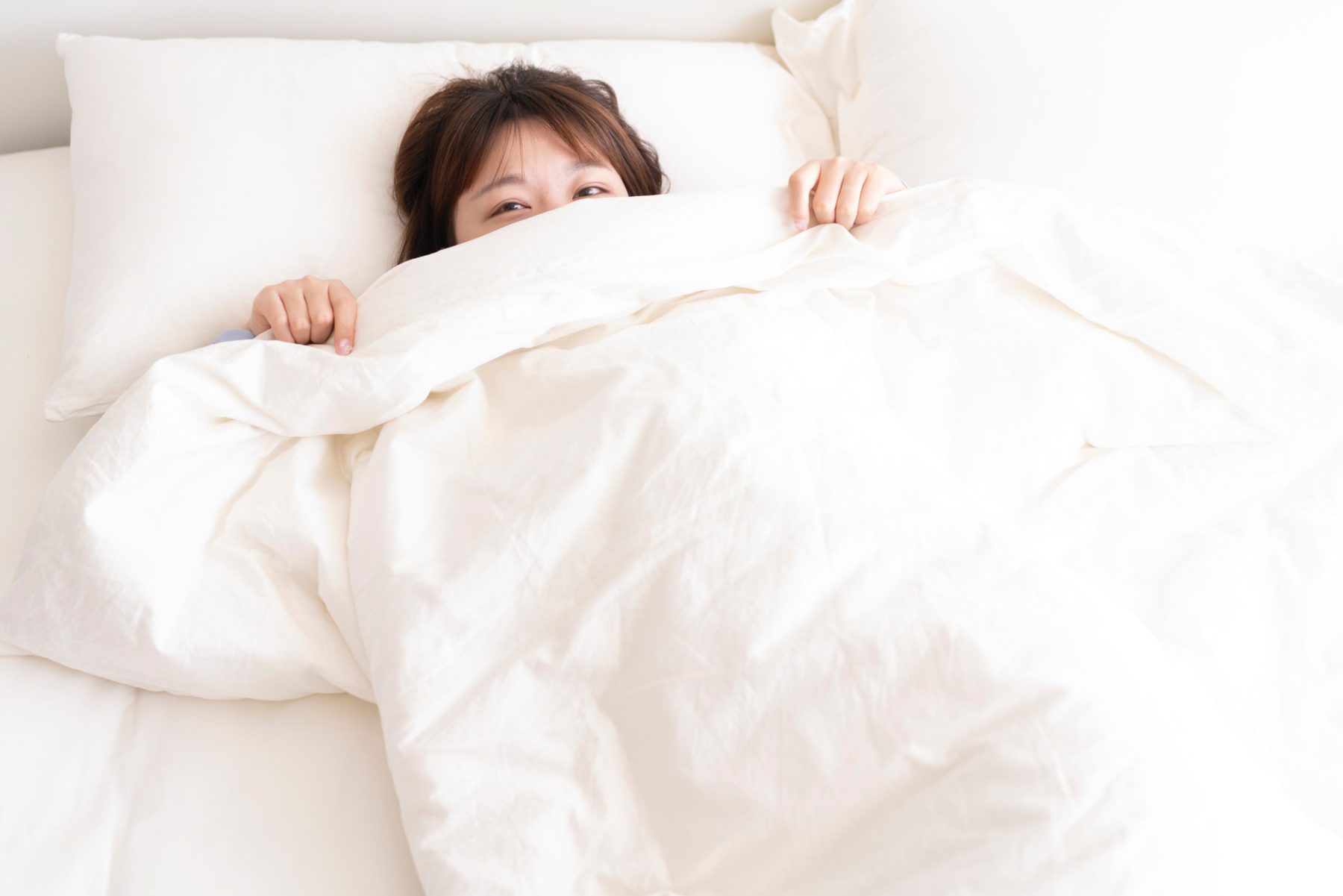How a Weighted Blanket Could be Your Cure for Insomnia

With the COVID-19 pandemic keeping us in isolation for the majority of our daily lives, physical touch may feel like something of the past. Although the vaccine has made it easier to go out with friends and family, physical closeness still poses a risk. Weighted blankets may be just the thing we need in this time of isolation.
2020’s global events have left the world with something more than a new virus: anxiety. The feelings of fear and isolation that followed the rise of COVID-19 have had an extreme effect on the mental health of U.S. citizens. According to a study by the Kaiser Family Foundation (KFF), the rates of anxiety and depression have significantly increased since the beginning of the pandemic. In the months leading up to the pandemic, the rate of depression and anxiety sufferers was about one in 10 adults. However, after the pandemic went into effect, those numbers rose significantly to four in 10 adults that suffer from mental health conditions.
Many of the test subjects reported having trouble sleeping and eating, an increase in substance abuse and worsening of preexisting chronic conditions due to isolation and job loss.
Keely Ventress, a student, says that being forced into isolation at her school for the past two semesters has only worsened her insomnia and anxiety. Ventress decided to invest in a weighted blanket and fell in love with it.
“I feel like using my weighted blanket helps a lot with my mental health because it kind of helps me put my anxiety at bay when it’s time to relax.”
Although understated, the benefits of sensory stimulation that comes from hugs, cuddles and overall intimacy is hugely important. These sensations allow the brain to produce a certain chemical called oxytocin — aka the love hormone. Oxytocin occurs naturally, but with the unusual circumstances that came from the pandemic, our brains may not be producing as much of it as we need. This imbalance can lead to an increase in feelings such as anxiety, depression and loneliness.
Over the last few years, many brands have created a variety of weighted blankets to fit a variety of comfort needs. Size and weight are both taken into consideration upon the creation of these blankets, as they are designed to reduce physical and mental stress on the body.
According to Penn Medicine, weighted blankets are utilized as ‘pressure therapy’ — a calm-inducing amount of pressure on your entire body, similar to the feeling of being hugged, swaddled, stroked or held. The right size and weight of a weighted blanket depend on the person’s needs.”
Additionally, according to Hush, a popular weighted blanket brand, this simulation triggers the release of neurotransmitters that act to decrease over-arousal and anxiety. Deep pressure therapy also aids in the release of both serotonin and dopamine, which are widely known to elevate mood.
While weighted blankets are great for reducing stress and helping with insomnia, there are also more hidden benefits to the product. Weighted blankets have been shown to help people with autism as well as sensory processing disorders. Many children and adults with autism also suffer from hyper or hyposensitivity which is a disorder that makes you more or less sensitive to things like noise, light and touch.
People with hypersensitivity tend to shy away from hugs with people, especially strangers, as it can be overwhelming. On the other hand, people with hyposensitivity also tend to crave physical touch more often than not. Hush explains that medical therapists tend to recommend weighted blankets to people with autism and sensory disorders due to their ability to benefit both those with hypo- and hypersensitivity.
Weighted blankets have even been found to improve certain physical conditions such as fibromyalgia and restless sleep syndrome. Fibromyalgia causes increased sensitivity and pain in various parts of the body. One of the recommendations for people with fibromyalgia is to apply mild, steady pressure to the 18 pain points located around the body. To do this by yourself with your own hands would be pretty difficult, which is why a weighted blanket can help. The weighted blanket will allow you to put pressure on all the pain points at once while ensuring you feel comforted and relaxed.
Mayo Clinic describes restless leg syndrome as “a condition that causes an uncontrollable urge to move your legs, usually because of an uncomfortable sensation. It typically happens in the evening or nighttime hours when you’re sitting or lying down. Moving eases the unpleasant feeling temporarily.”
The problem with restless leg syndrome is that it typically begins in the evening when you are lying down and getting ready to go to bed. Often the discomfort only subsides when you begin to get up and move around, which leads to poor sleep. Weighted blankets are known for their ability to distribute weight evenly throughout your body, which may help reduce RLS symptoms.
While weighted blankets may not be a cure-all, they can surely help those who struggle to catch all the Zzz’s they need. From easing a restless leg to satisfying the craving for closeness, a weighted blanket may be the anxiety-reducing hug one needs to ease into sleep — and stay asleep.






